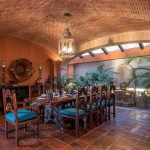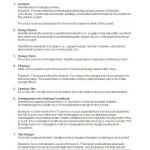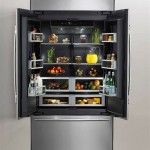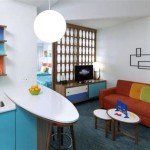What is Homco Home Interiors?
Homco Home Interiors, an acronym for Home Interiors and Gifts, was a prominent direct selling company specializing in decorative accessories and home furnishings. Founded in 1957 by Mary Crowley in Carrollton, Texas, the company operated for over 50 years, building a considerable network of independent consultants who sold products directly to consumers through in-home demonstrations, commonly referred to as "Home Interiors Parties." These parties provided a social and interactive shopping experience that differentiated Homco from traditional retail outlets.
The Homco business model was rooted in the principles of direct selling and multilevel marketing. Consultants earned commissions on their personal sales, as well as on the sales of consultants they recruited into their downline, creating a layered organizational structure. This structure, while controversial in some contexts, allowed Homco to expand its reach significantly without having to invest in brick-and-mortar retail locations. It relied heavily on the social connections and entrepreneurial spirit of its consultants.
The company was acquired by a private investment firm in 2007 and rebranded as Home Interiors. However, the company ultimately ceased operations in 2008, marking the end of an era for direct selling of home décor. Despite its closure, Homco Home Interiors remains a familiar name for many, particularly those who participated in or purchased products through its direct selling network. Its legacy is largely tied to its unique selling strategy, its emphasis on personal relationships, and the lasting popularity of many of its decorative items.
Key Points of the Homco Business Model
Understanding the Homco business model requires focusing on several core elements. These elements contributed to its success and its eventual challenges.
Direct Selling & Party Plan: The most defining aspect of Homco was its reliance on direct selling, specifically the party plan method. Independent consultants hosted parties in their homes or the homes of their clients. These parties served as a platform for showcasing Homco's product lines, offering personalized advice, and taking orders. This approach offered several advantages. Firstly, it provided a comfortable and social environment for shopping, encouraging impulse purchases and fostering customer loyalty. Secondly, it bypassed the need for traditional retail infrastructure, significantly reducing overhead costs. And finally, it empowered consultants to build their own businesses and earn income through sales and recruitment.
The party plan model also allowed for demonstrations and explanations of product features, which was particularly important for showcasing the versatility and design elements of Homco’s decorative items. Consultants could offer styling tips and suggestions, tailoring their presentations to the specific tastes and needs of their audience. This personal touch was a key differentiator in an era increasingly dominated by impersonal retail experiences. The interactive nature of the parties often led to larger orders and repeat business as guests were introduced to new products and became familiar with the Homco brand.
Emphasis on Relationships: Homco placed a significant emphasis on building strong relationships between consultants and customers. The party plan model naturally facilitated this, as consultants often developed personal connections with their clients by hosting parties in their homes. Trust and rapport were vital for success, as customers were more likely to purchase from someone they knew and respected. Homco also invested in training its consultants to develop their interpersonal skills, teaching them how to build rapport, understand customer needs, and provide exceptional customer service.
The company encouraged consultants to go beyond simple product sales and to act as personal decorators, offering advice and guidance on how to incorporate Homco products into their customers’ homes. This personalized service helped to create a stronger sense of loyalty and encouraged repeat business. Furthermore, Homco’s focus on relationships extended beyond consultant-customer interactions. The company fostered a strong sense of community among its consultants, providing opportunities for networking, training, and mutual support. This sense of belonging helped to motivate consultants and to create a collaborative and positive work environment.
Product Focus on Home Décor: Homco’s product line primarily consisted of decorative accessories designed to enhance the aesthetic appeal of homes. These products included figurines, wall décor, candleholders, vases, floral arrangements, and various other home accents. The company focused on offering a wide variety of styles and designs to appeal to a broad range of tastes. New products were introduced regularly to keep the offerings fresh and to encourage repeat purchases.
The price points of Homco products were generally positioned to be accessible to middle-class consumers, making them an attractive option for those looking to decorate their homes without breaking the bank. The company also offered special promotions and discounts to incentivize purchases and to reward loyal customers. While the quality varied across different product lines, Homco generally sought to offer items that were both visually appealing and reasonably durable. The emphasis on home décor allowed Homco to tap into a large and growing market. As homeownership increased and people placed greater value on creating comfortable and stylish living spaces, the demand for decorative accessories grew accordingly. Homco was well-positioned to capitalize on this trend through its direct selling model and its focus on building relationships with customers.
Homco's Legacy and Impact
While Homco ceased operations in 2008, its impact on the direct selling industry and the home décor market remains notable. The company’s legacy is complex, encompassing both positive contributions and points of critique.
Pioneering Direct Selling: Homco was a pioneer in the direct selling industry, particularly in the realm of home décor. It demonstrated the effectiveness of the party plan model for reaching a wide audience and building a loyal customer base. Its success inspired many other companies to adopt similar strategies, contributing to the growth of the direct selling industry as a whole. Homco’s innovative approach to sales and marketing set a precedent for other businesses and helped to shape the landscape of direct selling.
The company also played a role in empowering women in business. Its direct selling model provided opportunities for women to earn income and build their own businesses, often in a context where traditional employment opportunities were limited. Many women found success as Homco consultants, developing valuable skills in sales, marketing, and leadership. Homco’s emphasis on personal development and its supportive community helped to foster a sense of confidence and entrepreneurial spirit among its consultants. This contribution to women’s empowerment is an important aspect of Homco’s legacy.
Popularizing Home Décor Trends: Homco also played a role in popularizing various home décor trends. By offering a wide variety of decorative accessories, the company helped to make these trends more accessible to the average consumer. Its consultants acted as style advisors, helping customers to understand and incorporate these trends into their homes. Homco’s products often reflected the prevailing design aesthetics of the time, influencing consumer preferences and contributing to the evolution of home décor styles.
The company’s catalogs and marketing materials served as a source of inspiration for homeowners, showcasing different ways to decorate and personalize their living spaces. Homco also collaborated with designers and artists to create exclusive product lines, further contributing to its influence on the home décor market. The company’s ability to identify and capitalize on emerging trends helped to solidify its position as a leader in the industry.
Criticisms of the Homco Model
Despite its successes, Homco’s business model was not without its critics. Like other multilevel marketing companies, it faced scrutiny regarding the potential for pyramid schemes and the sustainability of its consultant network.
Potential for Downline Pressure: One of the main criticisms of Homco’s multilevel marketing structure was the potential for consultants to feel pressured to recruit new members into their downline. While recruiting was presented as an opportunity to earn additional income through overrides on downline sales, it could also lead to ethical concerns if consultants prioritized recruitment over product sales. The incentives associated with building a large downline could create pressure to recruit anyone and everyone, regardless of their suitability for the business.
This pressure could lead to aggressive recruitment tactics and misrepresentations of the income potential associated with being a Homco consultant. Critics argued that the focus on recruitment detracted from the emphasis on selling products, turning the business into a recruitment-driven scheme rather than a legitimate retail operation. While Homco had policies in place to address these concerns, the potential for abuse remained a persistent point of critique.
Sustainability of Consultant Network: The long-term sustainability of Homco’s consultant network was also questioned. As the company grew and the number of consultants increased, it became more difficult for new recruits to find customers and build successful businesses. The market became saturated with consultants, leading to increased competition and decreased earning potential. This saturation could lead to high turnover rates among consultants, as many became disillusioned with the business and left after a short period of time.
The company’s ability to retain consultants was crucial for its long-term success. However, the challenges associated with building a sustainable consultant network contributed to the company’s eventual decline. Critics argued that the saturation of the market and the limited earning potential of many consultants made the Homco business model unsustainable in the long run.

Home Interiors Gifts Homco Brochure S Catalog

Home Interiors Gifts Homco Brochure S Catalog Vintage

Vtg Homco Home Interior Large Gold Ladle Spoon Wall Plaque Syroco Dart 39 99 Interiors And Gifts Decor S Vintage Sconces

Homco Home Interiors Bride Bear Giftable

Home Interiors Gifts Homco Brochure S Catalog

45 Home Interiors Homco Ideas And Gifts House Interior

Home Interiors Homco Décor Decor Trash To Treasure Bring Vintage Back Life

Homco Home Interior Design Services Elementor Template Kit By Wirastudio

1980s Homco Home Interiors Bisque Porcelain Victorian Lady Figurine The Vintage

Homco Home Interiors Brass Wood Sconces Ruby Lane








